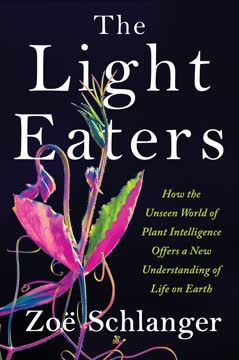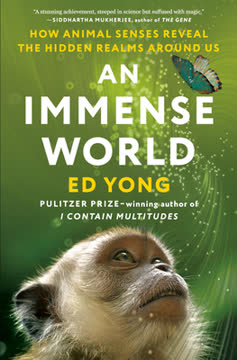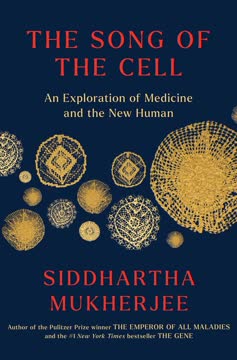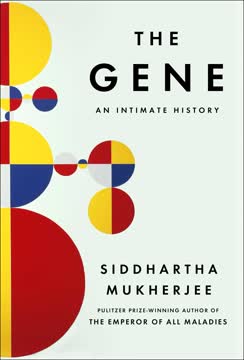重点摘要
1. 细胞:生命与医学的基本粒子
他们在施旺的描述中发现了“生物体的基本粒子”。
生命的构建块。 所有生物体,从最简单的细菌到最复杂的动物,都是由细胞组成的。这些细胞不仅是结构单元,也是功能单元,执行维持生命所需的各种过程。理解细胞是理解生命本身的基础。
细胞医学。 对细胞的理解彻底改变了医学,促成了针对疾病源头的细胞疗法的发展。这些疗法包括改变细胞行为的药物以及移植经过改造的细胞。
新的人类。 细胞工程正在创造“新的人类”——那些身体经过改造细胞重建,以减轻痛苦和治愈疾病的个体。这些进展为医学的未来带来了巨大的希望。
2. 细胞的发现:逐步揭示
世界必须用眼睛来衡量。
早期显微镜。 17世纪显微镜的发明打开了一个微小世界,揭示了细胞的存在。荷兰布商安东尼·范·列文虎克是最早观察到活细胞的人之一,他称之为“动物小体”。
胡克的贡献。 英国科学家罗伯特·胡克在显微镜下观察到软木的结构后,创造了“细胞”这一术语。尽管胡克并未完全理解其发现的重要性,但这标志着细胞生物学的开端。
挑战与怀疑。 早期的细胞生物学面临科学界的怀疑和抵制。细胞作为生命基本单位的概念需要时间才能被接受。
3. 细胞理论:生物学的统一原则
无论我们如何扭转,最终都会回到细胞。
施旺与施莱登。 马提亚斯·施莱登和西奥多·施旺提出所有植物和动物组织都是由细胞构成的。这一命题建立了生物体在组织和功能上的深刻统一。
维尔乔的贡献。 鲁道夫·维尔乔通过指出所有细胞来自其他细胞(“Omnis cellula e cellula”)进一步丰富了细胞理论。他还提出疾病是细胞功能失调的结果。
细胞理论的基本原则:
- 所有生物体由一个或多个细胞组成。
- 细胞是生物体结构和组织的基本单位。
- 所有细胞来自其他细胞。
- 正常生理是细胞生理的功能。
- 疾病是细胞生理失调的结果。
4. 病原理论:将微生物与疾病联系起来
不,我们可以更进一步,在这个小世界的最小粒子中发现一种新的、取之不尽的物质,能够被纺织成另一个宇宙。
微生物与疾病。 19世纪出现的病原理论确立了微生物是独立的、能够引起人类疾病的活细胞。这一理论彻底改变了医学和公共卫生。
巴斯德与科赫。 路易·巴斯德和罗伯特·科赫是病原理论发展的关键人物。他们证明了微生物与炭疽、霍乱和结核等疾病之间的联系。
科赫的法则。 科赫制定了一套标准,以建立微生物与疾病之间的因果关系。这些法则至今仍被用于识别传染病的病因。
5. 有序细胞:解剖与功能
每个细胞从其周围环境中选择,只取所需。
细胞自主性。 细胞是具有自主生存能力的活单位,拥有自己的内部组织和生存机制。这种自主性依赖于细胞的内部解剖结构。
关键细胞器:
- 细胞膜:定义细胞的边界并调节分子通过。
- 细胞质:细胞内部的液体,包含细胞器和其他分子。
- 线粒体:细胞的能量工厂,以ATP的形式产生能量。
- 内质网:参与蛋白质合成和运输的膜网络。
- 高尔基体:修饰和包装蛋白质以供分泌或传递到其他细胞器。
- 细胞核:包含细胞的遗传物质(DNA)。
细胞骨架。 细胞骨架提供结构支持并使细胞能够移动。
6. 细胞间通信:协调身体
每个细胞……都从另一个细胞获得刺激。
细胞间通信。 细胞通过多种信号进行相互沟通,包括激素、神经递质和细胞因子。这种通信对于协调组织和器官的功能至关重要。
激素。 激素是通过血液循环的化学信使,影响全身的细胞。它们在调节新陈代谢、成长和生殖中发挥着关键作用。
心脏。 心脏是一个细胞通信至关重要的器官。特化细胞产生电信号,刺激心肌收缩,将血液泵送到全身。
7. 干细胞:再生与修复
一旦显微镜被应用于植物结构的研究,其结构的巨大简单性……必然引起关注。
干细胞特性。 干细胞是独特的细胞,具有自我更新和分化为特化细胞类型的能力。这使它们在组织修复和再生中至关重要。
干细胞类型:
- 全能干细胞:可以产生所有细胞类型,包括胚胎和外胚层组织。
- 多能干细胞:可以产生体内的所有细胞类型,但不能产生外胚层组织。
- 单能干细胞:可以在特定组织内产生有限范围的细胞类型。
造血干细胞。 造血干细胞(HSCs)负责在整个生命中补充血细胞。骨髓移植作为一种细胞疗法,依赖于HSCs再生整个血液系统的能力。
8. 癌症:细胞的叛乱与生态破坏
无论我们如何扭转,最终都会回到细胞。
癌症的特征。 癌症的特征是细胞的失控生长和分裂。这通常是由于调节细胞周期、DNA修复和细胞死亡的基因突变所致。
肿瘤微环境。 肿瘤微环境在癌症的发展和进展中起着至关重要的作用。癌细胞与周围细胞(包括免疫细胞、血管和结缔组织)相互作用。
癌症干细胞。 一些癌症包含一小部分细胞,称为癌症干细胞,具有自我更新和分化的能力,推动肿瘤的生长和转移。
9. 免疫系统:细胞的军队
世界必须用眼睛来衡量。
先天免疫。 先天免疫系统是抵御病原体的第一道防线。它包括识别和吞噬外来入侵者的细胞,如巨噬细胞和中性粒细胞。
适应性免疫。 适应性免疫系统是一种更为特定和针对性的防御系统。它涉及产生抗体的B细胞和杀死感染细胞的T细胞。
T细胞识别。 T细胞通过检测呈现在MHC分子上的病毒肽来识别感染细胞。这种识别对于消除病原体和维持免疫稳态至关重要。
10. 细胞医学的未来:重建人类
我们将始终回到细胞。
细胞工程。 细胞工程涉及操控细胞以创造新的疾病疗法。这包括基因编辑、细胞移植和免疫疗法。
伦理考量。 随着细胞医学的进步,提出了关于科学干预的界限和人类定义的伦理问题。在广泛采用这些技术之前,考虑其潜在风险和收益是非常重要的。
细胞疗法的前景。 细胞疗法为医学的未来带来了巨大的希望。通过利用细胞的力量,我们或许能够治愈疾病、减轻痛苦并改善人类生活质量。
最后更新日期:
FAQ
What's The Song of the Cell about?
- Exploration of Cell Biology: The book delves into the discovery that all living organisms are composed of cells, which function together to form tissues, organs, and systems.
- Impact on Medicine: It highlights how cellular understanding has revolutionized medicine, leading to treatments like immunotherapy and gene editing.
- Historical Context: The narrative spans from the 17th century to modern advancements, showcasing key figures and milestones in cellular medicine.
Why should I read The Song of the Cell?
- Comprehensive Overview: The book makes complex cell biology concepts accessible, connecting historical discoveries with modern advancements.
- Relevance to Medicine: It is timely for those interested in the future of medicine, given the rise of cellular therapies and gene editing.
- Engaging Narrative: Mukherjee weaves personal stories and patient experiences, making the scientific discourse both informative and emotionally resonant.
What are the key takeaways of The Song of the Cell?
- Cells as Fundamental Units: Understanding cells is crucial for grasping human biology and disease.
- Cellular Pathology: The book emphasizes the role of cellular dysfunction in diseases and therapeutic effects.
- Future of Medicine: Advancements in cellular manipulation, like gene editing, will redefine health and treatment.
What are the best quotes from The Song of the Cell and what do they mean?
- "The world must be measured by eye.": Highlights the importance of observation in scientific discovery.
- "Life not so much 'is' but 'becomes.'": Emphasizes the dynamic nature of life and cellular processes.
- "Omnis cellula e cellula.": A foundational principle of cell theory, meaning "all cells come from cells."
How does The Song of the Cell connect cell biology to medicine?
- Cellular Understanding: The book illustrates how cellular mechanisms have led to medical advancements like targeted cancer therapies.
- Case Studies: Mukherjee shares patient stories to demonstrate the transformative impact of cellular therapies.
- Future Implications: Discusses emerging technologies like CRISPR and their potential to revolutionize medicine.
What is the significance of stem cells in The Song of the Cell?
- Regenerative Potential: Stem cells can differentiate into various cell types, crucial for regenerative medicine.
- Historical Context: The book traces the history of stem cell research and its therapeutic uses.
- Ethical Implications: Mukherjee addresses ethical dilemmas, particularly concerning embryonic stem cells.
How does The Song of the Cell address the immune system's function?
- First Line of Defense: The immune system is described as the body’s primary defense against pathogens.
- Balance of Activation and Tolerance: Emphasizes the importance of maintaining immune balance to prevent autoimmunity.
- Advancements in Immunotherapy: Discusses breakthroughs in cancer treatment through enhanced immune responses.
What role do T cells play in the immune system as described in The Song of the Cell?
- Recognition of Self and Non-Self: T cells are crucial for distinguishing between the body’s own cells and foreign invaders.
- Types of T Cells: Includes CD4 helper T cells and CD8 killer T cells, each with specific immune functions.
- Therapeutic Applications: Highlights the potential of T cell therapies, such as CAR T cell therapy, in treating cancers.
What advancements in cellular therapies are discussed in The Song of the Cell?
- Gene Editing Technologies: Covers CRISPR and its applications in correcting genetic mutations.
- Stem Cell Therapies: Discusses therapies for blood disorders and degenerative diseases.
- Ethical Considerations: Urges caution and responsibility in the application of these advancements.
How does The Song of the Cell explore the concept of cellular citizenship?
- Virchow’s Theory: Discusses the idea that the body is a cell state where every cell is a citizen.
- Implications for Health: Understanding cellular citizenship can lead to better medical approaches.
- Social and Ethical Dimensions: Connects cellular cooperation to broader societal collaboration in health.
What challenges does The Song of the Cell identify in understanding cellular functions?
- Complexity of Interactions: Cellular interactions are intricate, requiring ongoing research.
- Ethical Considerations: Highlights ethical dilemmas in stem cell research and genetic manipulation.
- Limitations of Knowledge: Acknowledges gaps in understanding, underscored by the COVID-19 pandemic.
How does The Song of the Cell relate to the ongoing COVID-19 pandemic?
- Impact on Immune Response: Discusses the complexities of the immune system's response to viral infections.
- Lessons Learned: Highlights gaps in cellular biology knowledge revealed by the pandemic.
- Role of Research: Advocates for continued research into cellular functions to address health crises.
评论
《细胞之歌》因其对细胞生物学的全面探讨而备受赞誉,书中融合了历史、科学和个人轶事。读者们欣赏穆克吉引人入胜的写作风格以及他解释复杂主题的能力。该书涵盖了从细胞发现到现代医学应用的广泛主题。尽管有些读者认为某些部分内容较为密集或重复,但大多数评论者对作者的专业知识和叙事能力给予了高度评价。这本书被视为一本信息丰富且发人深省的读物,尤其适合对科学和医学感兴趣的读者。
Similar Books

















